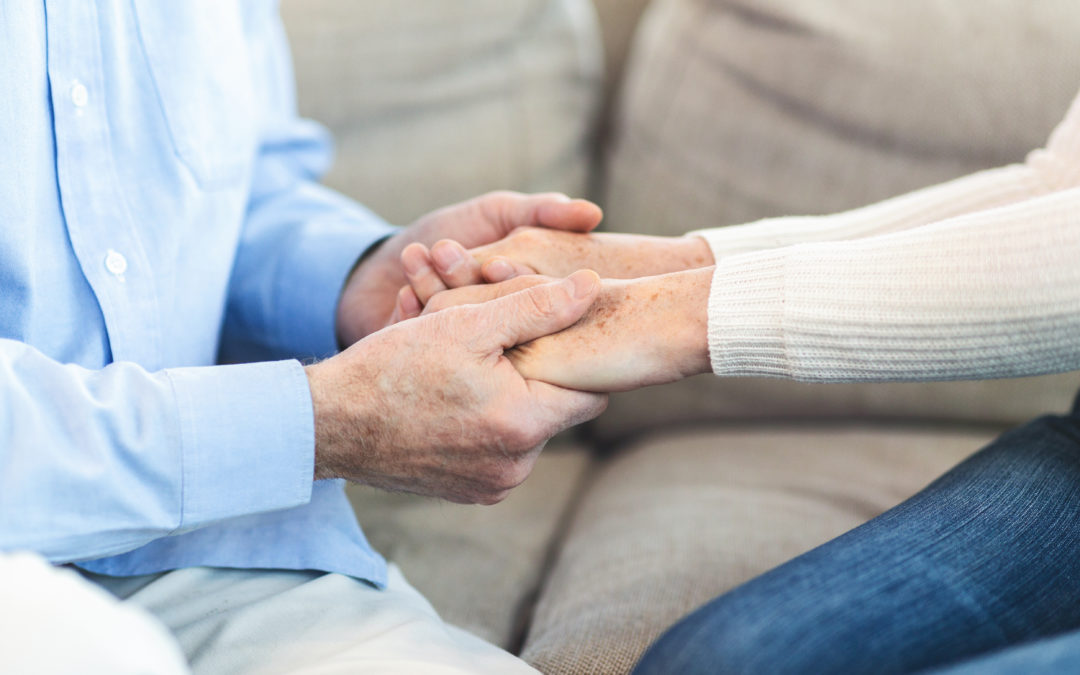As we get older and have our own families and responsibilities, we may forget our parents are aging right along with us. We like to think of our parents as our caregivers, but one illness (COVID-19 related or otherwise) can quickly turn the tables, making us more responsible for their health.
When a parent suffers an overall decline in physical and mental vitality, their appearance may visibly change along with their standard of life and well-being. Seniors who cannot feed themselves, bath or move around without help, need extra care that in-home health or assisted living provides. If your loved ones are in a facility that is not allowing visitors during this time, there are still ways to stay connected and support their mental well-being such as setting up a virtual meeting through the care center, sending pictures and cards in the mail or taking the time to connect via a phone call.
Other aging adults, those who still live independently, may just need an extra hand with their daily activities.
Help with Daily Activities
When an aging parent is recovering from an illness or has been diagnosed with a disease like heart disease, hypertension, cancer and arthritis, they may not be able to do all the daily activities they once did. You can help an aging parent by getting more involved in their daily lives and assisting them while making sure everyone stays safe.
- Drop off a fresh, home cooked meal or frozen meals that can be easily heated. Look into having healthy, ready-made meals shipped directly to their home.
- Set up a schedule with a lawn-care service to maintain their lawn.
- Offer to submit an online order for parents shopping for necessities and arrange for groceries or other items directly to their home. Some stores are even offering free delivery for high risk and elderly shoppers to ensure a safe (and affordable) way to receive their necessities.
- Run their errands for them. From keeping track of their tele-appointments to picking up medications, there are so many ways you can support them at a safe distance.
- Now is the time to help your parent manage their money and pay bills. It’s a good idea to have your parent add you to their checking account in the event they’re hospitalized or unable to make a payment.
- Keep a record of all of your parents’ prescriptions and check in regularly to make sure they’re taking them as prescribed.
Get Outside Help
The government offers more than 1,000 benefit and assistance programs covering health, disability, income, wealth, veteran status, education level and more. Benefits.gov is the official benefits website of the U.S. government and is a great source to start with.
Locally, Connections Area Agency on Aging, serves individuals and families in western, southwestern and south central Iowa. Connections Area Agency on Aging is one of six Area Agencies on Aging in Iowa. It serves aging Iowans, Iowans 18 and older with disabilities and their family caregivers through information and assistance, service navigation and coordination, and resources for independence. It’s a great place to ask about programs that can help your aging parent with:
- Prescription drugs
- In-home services
- Transportation
- Housing
- Healthcare
- Financial assistance
- Legal aid
- Energy/utility assistance
- Nutrition (including Supplemental Nutrition Assistance (SNAP)/Food Stamps)
Talk to Their Doctor
It is a good idea for you to join your parent on his or her tele-appointments. Be sure to have the list of their current prescriptions and ask questions about any additional medications, such as, how long they should take them and how you can get refills. Don’t forget to set a follow-up appointment before you logoff.
Prompt your parents to talk to their doctor about any medical concerns they’re having. Many elderly patients aren’t always completely honest with their physicians because of fear of a bad diagnosis, i.e., COPD, cancer, Parkinson’s disease or a form of dementia.
Talk to the doctor ahead of time to alert them to any medical situations you don’t feel your parent will be honest about. Because of HIPAA, your parent’s doctor cannot give you information about their health without proper authorization or a valid medical power of attorney document. You can also contact one of our locations to get advice or ask questions.

